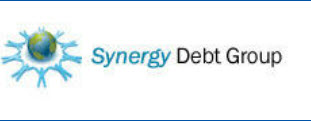Synergy Debt Group
Eliminating debt key to your well-being
Posted Jan 5, 2012 By Brynna Leslie
EMC Lifestyle - I spend a lot of time thinking about consumer debt, which is interesting, because - at the risk of making you hate me - I don't have any.
A decade ago, I started out my career by contributing half my first professional paycheques to paying off credit card debt I'd racked up during university. Within a year of working, I had erased any balance owing. Following that, I began the nine-year process of paying off $35,000 in undergraduate student loans. Over 75 per cent of my paycheque at one time went toward these two debts. One would think I had little left to live on. But I never suffered. I shared flats. I ate modestly. I shopped for clothes in vintage stores. I even managed to save half a down payment for my first house within a few years and I took three years' maternity leave without pay before I ever found myself in the red.
Nope, I never suffered, unless you count the fact that I went without a car, decided to forego annual trips to Cuba with my friends, and used a second-hand television without cable for many years. But that's not real suffering. Because now, I have no consumer debt. And from what I understand, that's where the real suffering lies.
Shortly before Christmas, the International Monetary Fund raised alarm about the rising levels of household debt in Canada. Canadians now owe an average of 153 per cent of their disposable income. Add to that over-inflated housing prices, and any shock to the economy, says the IMF - like a dip in commodity prices or a weak global economy - means Canada will have a difficult time recovering.
And while I don't carry a balance on a credit card, I do have a mortgage, and I also have savings. So in many ways, my neighbour's debt could very well affect my well-being and yours.
As January credit statements start to pour in, it's worth considering how to start digging Canadians out of this deep debt hole. For one, I'd like to see stricter regulations on lenders. It's too easy for people to get car loans and mortgages. (Even unemployed university students can get credit cards).
But individuals must also start taking responsibility for their spending.
That begins by recognizing that we cannot afford to maintain our current lifestyles.
The old and simple rule of financial security applies: We have to tighten our belts and live on less.
It's not easy, of course, with inflation on staple foods, utilities and just about every necessity in life. One Ottawa bankruptcy expert recently pointed out that housing costs have risen by 76 per cent since 1976, while disposable income has gone up a meagre 15 per cent. Put simply, we don't have as much money to spend as we used to.
Add to that the fact that individuals buy, buy, buy, without accounting for costs of maintenance, and it paints a dark picture of debt accumulation. If you buy a car, you have to calculate how much it's going to cost to insure the car, to repair the car, and to put gas in the car, especially with rising fuel prices. If you buy a house, you need to look at the size of the rooms and the hallways and determine whether or not you can actually afford to heat and furnish a five-bedroom house with cathedral ceilings in the suburbs, which will require you to drive to and from work.
The answer if you're like most Canadians? Probably not.
In 2012, make a resolution to aggressively start eliminating debt. It's going to be difficult.
You may feel you're suffering at first. But my financial future and yours depends upon your success.

No comments:
Post a Comment